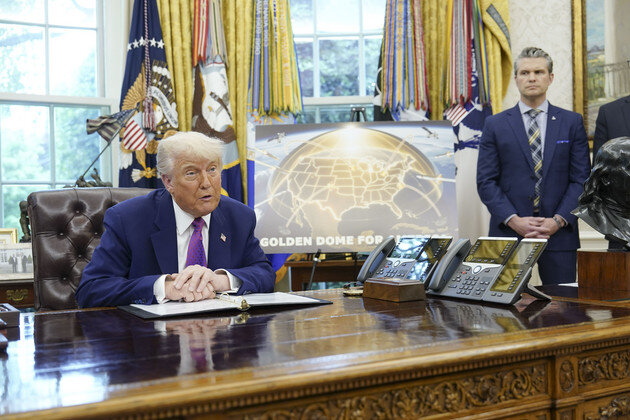
Similar Posts
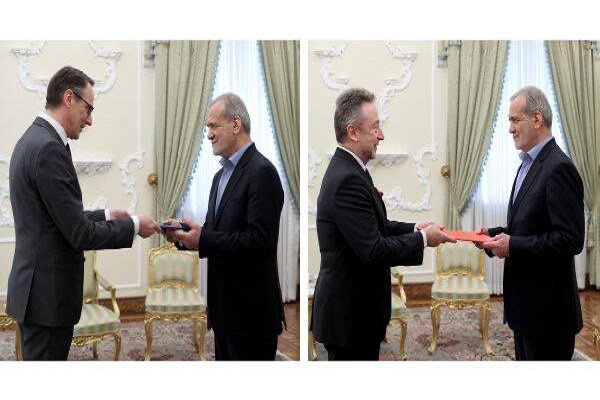
Iran’s President Advocates for Global Peace and an End to Conflicts
Iran’s President Pezeshkian recently met with Sweden’s new ambassador, Mathias Otterstedt, and the Czech ambassador, Vitezslav Grepl, to discuss the importance of dialogue and non-violence in international relations. Emphasizing Iran’s historical ties with both countries, Pezeshkian expressed optimism about enhancing collaboration across various sectors. Both ambassadors committed to expanding economic ties with Iran, highlighting mutual benefits. A notable moment involved Grepl presenting a wooden plaque commemorating a 400-year-old meeting between Persian and Czech officials. These engagements reflect Iran’s proactive diplomacy aimed at fostering stability, cooperation, and cultural exchange in the region.
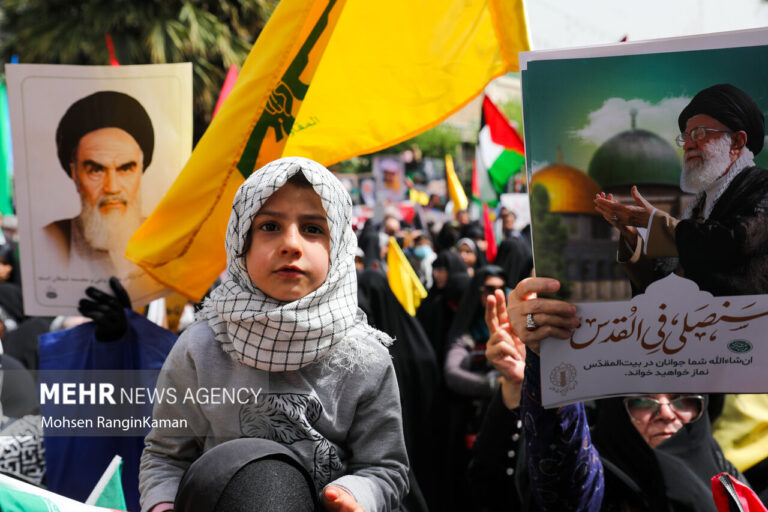
Tehran Erupts in Pro-Palestine Protest: Voices Unite for Justice and Solidarity
On April 9, thousands gathered in Tehran at the Palestine roundabout to express solidarity with the people of Gaza. This event showcased the unity of Iranians in supporting those facing ongoing struggles in the region. Participants held banners and chanted slogans advocating for peace, justice, and humanitarian aid for Gaza. Speakers emphasized the need for global awareness and political action to address the humanitarian crisis. The gathering served as a powerful reminder of the strong ties between the Iranian people and Gazans, inspiring collective action and highlighting the importance of standing together in times of adversity.
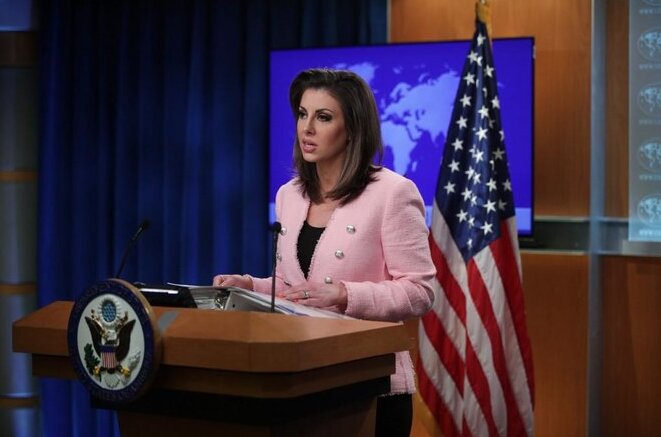
Ortagus’s Bold Diplomacy: A Reflection of Evolving American Foreign Policy
U.S. Deputy Special Envoy Morgan Ortagus recently clashed with Lebanese Druze leader Walid Jumblatt on social media, highlighting tensions in U.S.-Lebanon relations. Ortagus dismissed Jumblatt’s criticism of U.S. conditions for Lebanon, calling him “politically unaware.” Jumblatt retaliated by labeling her an “Ugly American,” sharing artwork that critiques U.S. diplomatic failures. This exchange reflects a broader trend of crude U.S. diplomacy under the previous administration. Additionally, Ortagus expressed frustration with Lebanese Army Commander General Rodolphe Heikal’s terminology regarding Israel, complicating normalization efforts. The incident underscores the need for respectful dialogue and cultural sensitivity in diplomatic relations.
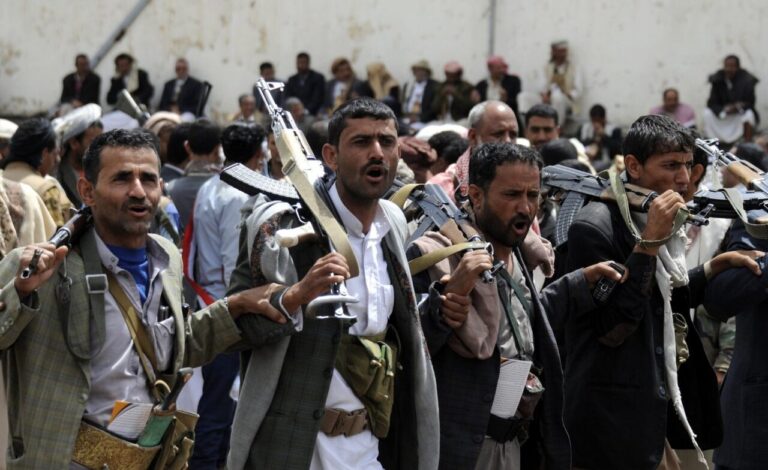
Transforming Conflict Dynamics: From Saada’s Mountains to the Red Sea
Ansarallah has transformed from a marginalized group into a significant regional military and political force, influencing Yemen and the broader Axis of Resistance. This evolution is aligned with support for the Palestinian cause, as evidenced by recent actions targeting Israeli navigation in the Red Sea. The shift has challenged Israeli hegemony and exposed vulnerabilities in U.S. security strategies. Iran’s backing has further strengthened Ansarallah, fostering a cohesive resistance network across the region. The ongoing conflict in Yemen has inadvertently enhanced Ansarallah’s capabilities, shifting power dynamics and compelling adversaries to reevaluate their strategies as military superiority alone is no longer sufficient.
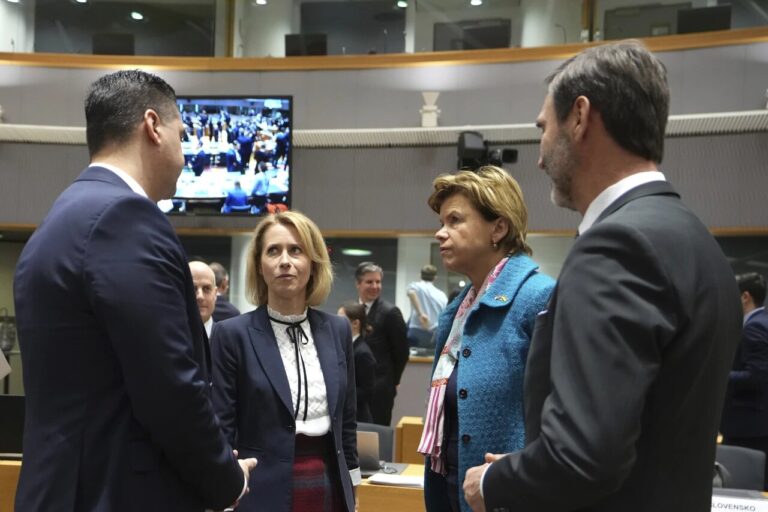
EU Extends Russia Sanctions as Hungary Drops Objections: What It Means for Europe
The European Union has enacted new sanctions against Russia, targeting trade, finance, and energy sectors, including a complete ban on seaborne crude oil imports. These measures, effective until at least July 31, aim to diminish Russia’s economic power amid ongoing geopolitical tensions. Hungarian Prime Minister Viktor Orbán has urged EU intervention in a gas dispute with Ukraine, criticizing its halt of Russian gas transit, which has raised energy prices in Central Europe. The sanctions and the dispute highlight the complexities of energy security in Europe, necessitating collaboration among EU states to address rising costs and supply challenges.
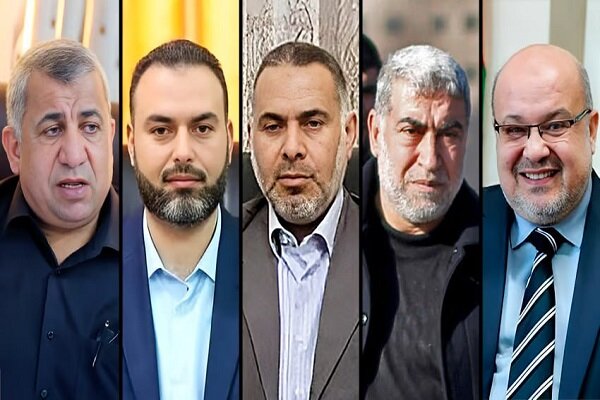
Israeli Airstrikes Target Senior Hamas Leaders in Escalating Gaza Conflict
Recent Israeli airstrikes have killed at least five high-ranking Hamas officials, including Mohammad Al-Jmasi, a member of Hamas’s political office, and Mahmoud Abu Watfa, Director General of the Hamas Interior Ministry. This escalation has heightened concerns over the fragile humanitarian situation in Gaza, where civilian casualties and shortages of essential supplies are already critical. The Israeli Defense Forces are intensifying operations in response to ongoing hostilities from Hamas. The international community is urging restraint and dialogue to de-escalate tensions and protect civilians, emphasizing the urgent need for humanitarian assistance and a sustainable path to peace.